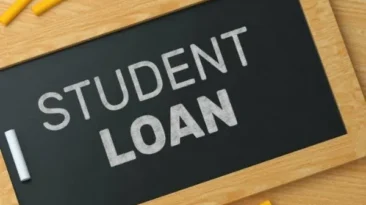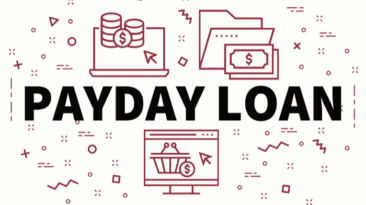If you find yourself juggling multiple debts and struggling to keep track of due dates and interest rates, a consolidation loan might be the financial solution you need. Consolidation loans provide an opportunity to merge multiple debts into one manageable payment, simplifying your financial life.
In this article, we will dive deep into the world of consolidation loans, exploring how they work, and their benefits, and answering your frequently asked questions.
Consolidation Loan – What is it?
A consolidation loan is a financial product that allows individuals to combine various high-interest debts, such as credit card balances, personal loans, or medical bills, into a single, lower-interest loan. By doing so, borrowers can streamline their debts and potentially save money on interest payments.
How Does a Consolidation Loan Work?
When you opt for a consolidation loan, the lending institution disburses funds to pay off your existing debts. You then make a single monthly payment to the lender at a fixed interest rate and a predetermined term until the loan is fully repaid.
Benefits of Consolidation Loans
Consolidation loans come with several advantages, including:
1. Simplified Finances
By merging multiple debts into one, you reduce the hassle of managing various payments and due dates.
2. Lower Interest Rates
Consolidation loans often come with lower interest rates than credit cards and other high-interest debts, helping you save money over time.
3. Improved Credit Score
Consistently making on-time payments on your consolidation loan can positively impact your credit score.
4. Pay off Debt Faster
With a structured repayment plan, you can become debt-free faster than with multiple individual debts.
Types of Consolidation Loans
Various types of consolidation loans cater to different needs. Some popular options include:
1. Home Equity Loans
Secured by your home’s equity, these loans offer competitive interest rates and long repayment terms.
2. Personal Loans
Unsecured loans that don’t require collateral, with terms usually based on your creditworthiness.
3. Balance Transfer Credit Cards
Credit cards allow you to transfer high-interest balances onto a new card with a low introductory interest rate.
4. Debt Management Plans (DMP)
DMPs are offered by credit counseling agencies and involve negotiating with creditors to lower interest rates and consolidate debts.
Who Can Benefit from a Consolidation Loan?
A consolidation loan can be a valuable tool for individuals facing the following situations:
1. Multiple Debts with High-Interest Rates
If you have several debts with high interest rates, consolidating them can lead to significant interest savings.
2. Difficulty Managing Debt Payments
Struggling to keep track of numerous debt payments? Consolidation can simplify your financial life.
3. Seeking Debt-Free Status
If you’re committed to becoming debt-free, a consolidation loan can provide a clear path towards that goal.
4. Improved Credit Score
For those looking to improve their credit score, a consolidation loan offers an opportunity to build a positive payment history.
The Consolidation Loan Process
The process of obtaining and utilizing a consolidation loan typically involves the following steps:
1. Assess Your Debt Situation
Evaluate your current debts, interest rates, and monthly payments to determine if consolidation makes sense for you.
2. Research Lenders
Explore different lenders and loan options to find the best terms and interest rates that suit your needs.
3. Apply for the Loan
Submit your application to the chosen lender, providing all necessary documentation.
4. Loan Approval and Disbursement
Once approved, the lender will disburse the funds to pay off your existing debts.
5. Start Repayment
Make timely monthly payments on your consolidation loan until it is fully repaid.
Common Misconceptions about Consolidation Loans
1. Consolidation Loans Erase Debt
A consolidation loan does not eliminate your debt; it merges it into one loan for easier management.
2. Negative Impact on Credit Score
While the loan application might have a temporary impact, regular, on-time payments can improve your credit score.
3. Consolidation Loans are Only for Those in Crisis
Consolidation loans can benefit anyone with multiple debts, not just those in dire financial straits.
4. All Debts Can Be Consolidated
Certain debts, like student loans, might not be eligible for consolidation.
FAQs
Q: Can I get a consolidation loan with bad credit?
Yes, you can still get a consolidation loan with bad credit, though it might come with higher interest rates.
Q: Will consolidating my debts affect my taxes?
Consolidating debts generally doesn’t have tax implications, but it’s best to consult a tax professional.
Q: Can I use a consolidation loan to pay off secured debts?
Yes, you can use a consolidation loan to pay off secured debts as well.
Q: Is there a minimum debt amount required for consolidation?
The minimum debt amount required for consolidation varies among lenders.
Q: Can I continue using my credit cards after consolidation?
Yes, but it’s advisable to avoid accumulating more debt on your credit cards.
Q: How long does the consolidation process take?
The consolidation process can take anywhere from a few days to a few weeks, depending on the lender and your application.
Conclusion
A consolidation loan can be an effective tool to regain control of your finances, simplify your debt management, and work towards a debt-free future. Assess your financial situation, research lenders, and choose the best consolidation loan that aligns with your goals. With a clear repayment plan, you can be well on your way to financial freedom.





Add comment